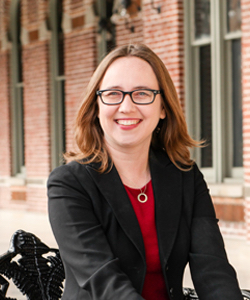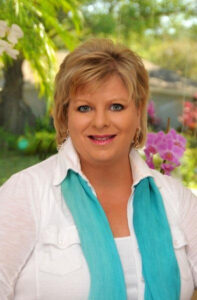The League of Women Voters Manatee asks two experts what women should be aware of
By Johannes Werner
Original Air Date: Jan. 10, 2024
Host: Politicians and strategists increasingly see women as crucial swing voters who influence the vote of the males around them. So what are the current political factors driving female voters here? In a Zoom meeting on Monday, the League of Women Voters Manatee tried to get answers from two actors-slash-experts. Our news team listened in.
Johannes Werner: Yesterday, amid tornado warnings in Tallahassee, the Florida legislature started its 2024 session. The day before, the League of Women Voters Manatee asked two observers about the current political state of women in Florida.

Coleman
Liv Coleman, a former Democratic candidate for state house and political science professor at the University of Tampa, started with representation: About 41 percent of legislators are female now, which is – obviously – less than half, but the number of women in the legislature keeps rising. Florida is actually one of the better states in the union when it comes to overall female representation, but when it comes to leadership, only about 30 percent of leaders at the committee level are women.
Some recent laws that had particular impact on women: A family leave law for state employees, alimony law reform, and new restrictive abortion laws.
Coleman highlighted the successful petition drive to enshrine access to reproductive rights in the Florida constitution.
Liv Coleman: That’s just a tremendous accomplishment in such a short time, to get all those signatures. So congratulations to everybody. The Florida Supreme Court will still need to rule on the amendment language. And then, if they do and agree that it’s a single subject, and it’s clear and so forth, then it’ll be on the ballot in November 2024. In Florida it’s pretty steep, you know, the levels for constitutional amendments. It needs 60% of the vote in November 2024. So that’s something that I’m sure we’ll see a lot of advocacy about going forward.
JW: Coleman also highlighted the impact on women of a new higher-education law that restricts the teaching of certain theories, and makes teaching of matters relating to gender and race difficult. Coleman called the law “draconian”, and said it will make it harder to study and understand the condition of women.
Pending legislation in this session that require attention, according to Coleman, are a bill establishing civil liability for the treatment of fetuses, as well as several bills related to gender identity. There is also legislation filed for an equal-rights amendment for women, but that bill is likely to die in committee.
Ashley Brown, a long-time team member of the Women’s Resource Center in Sarasota, and a board member of the League of Women Voters, put the spotlight on the economic realities for women in Florida — which, in her words, “aren’t pretty”. She cited the United Way’s ALICE report, which shows the real cost of living in our community. A survival budget in Manatee County for a single person, according to ALICE, is close to $30,000, and $72,000 for a family with two children. Under this measure, nearly half of women in Sarasota are economically insecure.
Ashley Brown: This is a lot of the clients we see. It’s people that are above poverty, but aren’t making enough to really thrive in our community, and women are over-represented in poverty and in the ALICE population. Not surprisingly, single female heads of households, 76% in our region, live below the ALICE threshold. Seventy-six percent! You know, when we look at insurance, affordable housing, childcare, inflation, all of those coming together, really are a perfect storm of more people struggling rather than more people making progress.

Brown
JW: The one issue that figures prominently in this reality is political decision-making affecting women as caretakers. Women are disproportionately affected by lack of income or retirement income when they take care of children, aging parents, or sick spouses. Cost of living is the other part of the equation, particularly the lack of affordable housing. Policymaking regarding short-term rentals, homeowners’ insurance, and homeowners association fees matters a lot, Brown suggests. And the final piece, obviously, is the fact that women disproportionately work in low-wage service jobs.
According to Brown, local politics can make a big difference, for good and bad. Brown put the spotlight on the Sarasota County commission’s current makeover of the county’s social services funding process. Driven by Commissioner Mike Moran, the all-male commission at one point voted to massively de-fund childcare.
AB: The cost of child care is huge, and the affordability of childcare is an issue. Sarasota County, in the last budget session, the county commissioners were proposing to cut funds for the Early Learning Coalition, which were pass-through funds — a big portion from this state to local — as well as other programs that were serving low-income families. And there’s such a danger in looking at a service such as access to quality, safe childcare as a philanthropic issue versus a community issue.
JW: This has been Johannes Werner, reporting for WSLR News.
WSLR News aims to keep the local community informed with our 1/2 hour local news show, quarterly newspaper and social media feeds. The local news broadcast airs on Wednesdays and Fridays at 6pm.